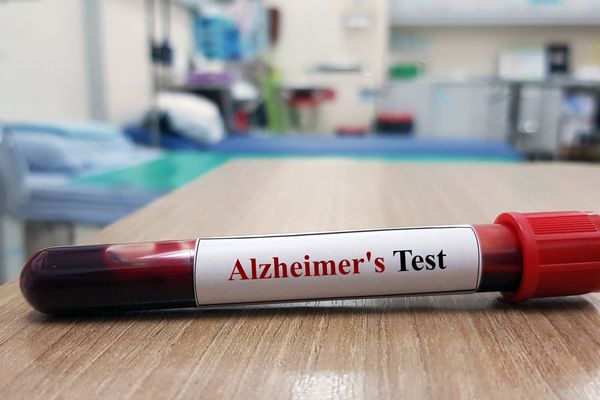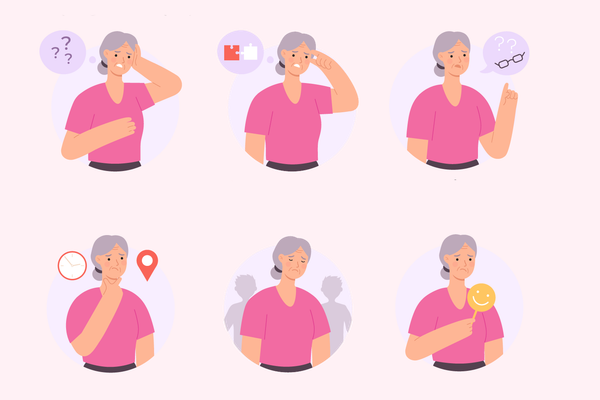Lynn Rosenberg, Boston University; Patricia Coogan, Boston University, and Yvette Cozier, Boston University
African Americans have higher rates of dementia and Alzheimer's disease than white Americans. Chronic stress, associated with cognitive impairment and reduced volume in the brain's memory area, could be a culprit. But racism may be one of the ultimate causes. And for African American women, the problem may be particularly pernicious.
We are epidemiologists at Boston University. Our work is focused on the Black Women's Health Study (BWHS), a landmark investigation that has followed 59,000 African American women since 1995.
Previous data from our study showed that racism experiences are associated with increased risks of premature birth, obesity, Type 2 diabetes, uterine fibroids, adult-onset asthma and insomnia.
More recently, we wanted to see how racism might impact cognition in African American women. And we found that women reporting the most racism scored lower on tests of cognitive function than those who reported few such experiences.
The connection between racism and health
Here are the details: In 1997, and again in 2009, we asked participants about their experience with interpersonal and institutional racism.
For interpersonal racism, we asked questions like: How often do people act as if they were afraid of you?
For institutional racism, we asked: Have you been unfairly treated by police, or when looking for housing or a job?
Cognitive decline generally occurs at older ages. When the study began, half the participants were 38 or younger. Twenty years later, in 2015, the time was ripe to study cognitive aging.
More than 17,000 African American women, age 55 or older, participated. We asked them six questions to measure subjective cognitive function. Three questions asked if they had difficulties with memory, like remembering a short list of items. The other three asked about cognition difficulties, like following a group conversation.
Sixty percent of the women reported no difficulties with any of the six situations. Twelve percent reported difficulties with three or more. Those women scoring lowest also reported the highest level of everyday and institutional racism. The association between racism and poor cognitive function, our analysis suggests, might be partly attributable to increased depression or insomnia in the women who experienced the most racism.
A caveat: Our study, though large and statistically powerful, has a major limitation. As one might imagine, subjective cognitive function is a subjective measure. Although studies show subjective assessment is associated with objective measures of cognition – and is predictive of dementia and Alzheimer's disease onset – purely objective measures would still be preferable.
Other studies, future studies
What have other studies found on racism and cognition?
We found (only) three in the scientific literature. In the Minority Aging Research Study, with 407 African American participants, high levels of perceived racism were associated with worse global cognition. In the Health and Retirement Study, with 1,628 African Americans, discrimination scores were higher and cognitive scores lower in African Americans than white participants at baseline. Over six years of follow-up, more discrimination was associated with faster episodic memory decline.
The third study – the National Survey of Midlife Development, which included 796 African Americans – had contrasting results. Little difference existed between the reported discrimination in African Americans and whites. And discrimination was not associated with cognition in the combined sample.
[Deep knowledge, daily.Sign up for The Conversation's newsletter.]
We will continue to study how racism intersects with cognition in our study participants. As we go forward, we will develop better assessments of cognitive function, which is affected by many factors: good jobs, housing, medical care, quality education, fair policing, access to healthy food and safe neighborhoods.
The demonstrations following the murder of George Floyd indicate that better conditions for African Americans may finally start to happen. But even if that occurs, self-care is imperative to help stem the effects of racism and other stressors. To that end, we will orient our analyses to how individual actions – like exercise, spirituality or religious practices – might counteract the destructive effects of racism.![]()
Lynn Rosenberg, Professor of Epidemiology, Boston University; Patricia Coogan, Research Professor of Epidemiology, Boston University, and Yvette Cozier, Associate professor, Epidemiology, Boston University
This article is republished from The Conversation under a Creative Commons license. Read the original article.







